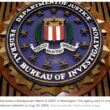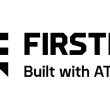Rebanding schedule offtrack
Just days before Wave 1 800 MHz public-safety licensees were scheduled to have their rebanding agreements finalized, there was no official word about the progress being made, but the anecdotal evidence was anything but positive.
Mandated by the FCC in the summer of 2004 to alleviate interference to public-safety communication systems operating at 800 MHz, the clearing of licensees in Channels 1-120 has proceeded in a manner that would let the massive project be completed in the three-year timetable established by the commission.
But moving NPSPAC users into this spectrum has proved to be significantly more difficult. Even with a three-month extension to negotiate rebanding agreements with Sprint Nextel, it appeared that hundreds of public-safety licensees would have to enter mandatory mediation as of Nov. 1 in an effort to accelerate the resolution of outstanding issues (see chart).
Exactly how many public-safety licensees might not have a rebanding deal completed was not available as of press time, because no quarterly report updating such statistics has been released in more than five months. But sources indicated it could be at least 100 licensees — and as many as 300 licensees — of the 424 NPSPAC Wave 1 licensees.
Alan Tilles, who represents many public-safety entities in rebanding negotiations as a partner in the law firm of Shulman Rogers Gandal Pordy & Ecker, said he believed three or four of his two dozen Wave 1 clients might have a rebanding deal completed in time to avoid mediation. Others have a wide variety of outstanding issues, from needing to do the work called for in a planning-funding agreement to being locked in a negotiating standstill with Sprint Nextel.
“I’ve even got four deals where I’ve yet to receive a cost estimate from the licensee,” Tilles said.
Motorola, the vendor with the most equipment in the band, has seen similar progress within its customer base, said Chuck Jackson, Motorola’s vice president and director of system operations. Motorola had shipped just 100 replacement radios and no upgrade kits as of press time, and 75% of its Wave 1 customers still had not managed to reach an agreement on planning funding, meaning they are way behind the existing timetable — even with the three-month extension to the negotiating period.
“You’re going to have get that [planning-funding] agreement in place, then you’re going to have to do the [planning], then you have to get equipment lists and quotes to the customer, and then they’re going to have to negotiate a frequency relocation agreement,” Jackson said. “So this is going to be pretty protracted.”
And reaching these agreements are just the beginning — there will still be a massive amount of work to be done to execute the rebanding agreements, Jackson said. To meet the current schedule, 300,000 Wave 1 radios would have to be rotated in a replacement/upgrade cycle in a “pretty unrealistic” timetable of six months, he said.
“We may be able to manufacture it, and we may be able to find enough technicians to do the installs, but you can’t pull every police car in a city off the street at the same time,” Jackson said. “Every time we install a large system — and this isn’t just about rebanding — the biggest problem we have is getting enough vehicles every day to keep the installers busy. … There’s always a big incident [where radios are needed] — public safety, by nature, is unpredictable.”
To make matter worse, while hundreds of NPSPAC licensees are expected to enter mandatory mediation on their final rebanding agreements, some are in voluntary mediation just to secure funding for planning purposes.
One such licensee is Chester County, Pa., which is worried that a television station operating on Channel 69 could cause interference after rebanding, said Ed Atkins, Chester County’s director of emergency services. More important, Chester County officials have been outspoken in its belief that EFJohnson’s replacement radios are not adequate for its purposes and that an entirely new system is needed.
“I don’t see how we can reband our current system,” Atkins said. “I’m hoping I’m wrong, and I’ve asked a number of people to look at it, but I haven’t seen any proof yet.”
Meanwhile, there are other missing pieces of the rebanding puzzle. While state department officials supposedly have made settling the border issues with Canada and Mexico a priority, no new treaties exist. Without treaties, Wave 4 licensees cannot reband — a discouraging note, given that negotiations for Channels 1-120 operators started in early October, and negotiations for NPSPAC users are scheduled to begin in just a few months.
State department officials have not divulged the issues in the international negotiations, but many believe money is among the topics for discussion. While Sprint Nextel is paying for rebanding in the U.S., Canada and Mexico lack a similar funding source to pay for rebanding — something Motorola’s Jackson discovered when making a presentation to Canadian regulators.
“Their view is, ‘We don’t have any problems aligning with the U.S. If somebody wants to pay to have our systems move, we’re all for it — just tell us where to send the bill.’” he said.
With so many outstanding issues, several sources expressed optimism that the FCC decision to have David Furth focus on rebanding as part of the agency’s new public-safety bureau might help matters, but Furth’s role in the process had not been clearly defined as of press time.
Regardless, an extension to the rebanding schedule by as much as two years may be warranted, Jackson and Tilles said. Wanda McCarley, president of the Association of Public-Safety Communications Officials, agreed that additional time likely is needed but said she wants to ensure that an extension does not result in participants losing their sense of urgency to alleviate a potentially dangerous interference problem.
“I think everybody, in our heart of hearts, knows that we’ll never make that 36-month timeline,” she said. “But I think there’s just as much angst over the prospect of a delay. … We may not reach the original timeline, but we owe it to our constituents to meet the best timeline we can meet.”
REBANDING’S MOMENT OF TRUTH
Scheduled milestones for 800 MHz public-safety licensees on Nov. 1
| Wave 1 Licensees without a final rebanding agreement enter the alternative dispute resolution process (mandatory mediation). | |
| Wave 2 Licensees enter the mandatory-negotiation phase. | |
| Wave 3 Licensees enter the voluntary-negotiation phase. | |
| Stage 2 | |
| Source: Transition Administrator |

















